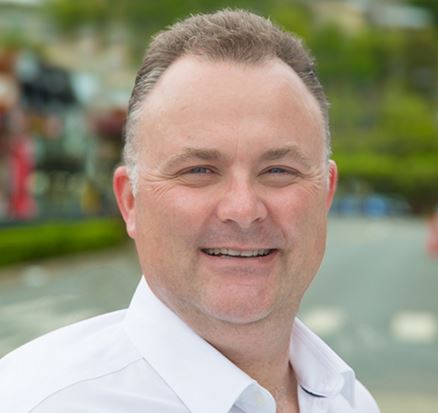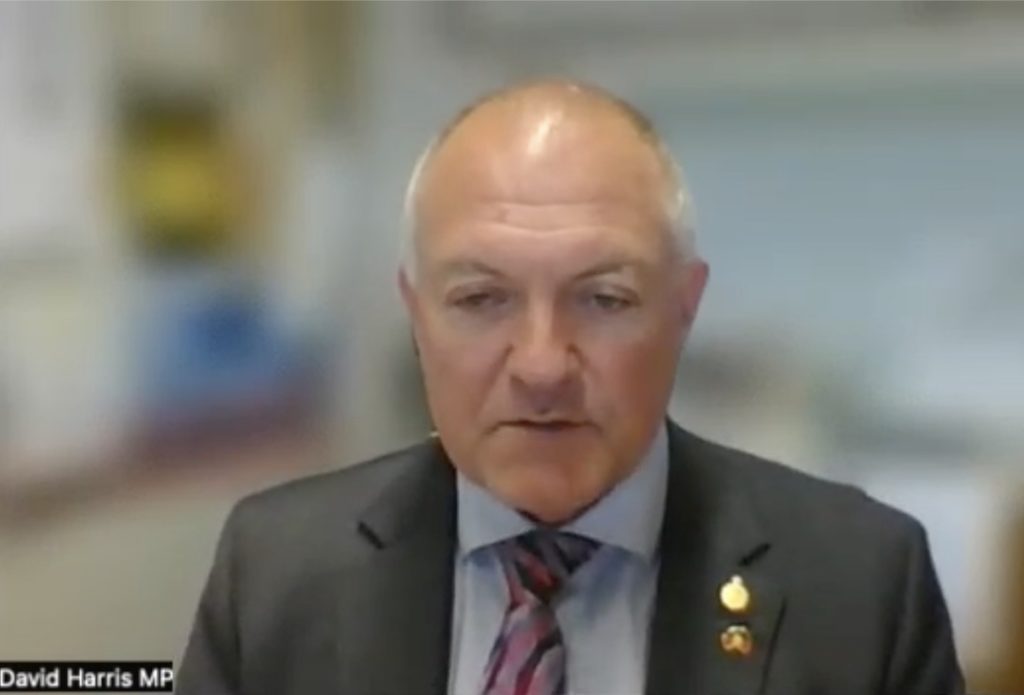With the State election to be held in just three weeks’ time, Parliamentary Secretary for the Central Coast Adam Crouch and Shadow Minister for the Central Coast David Harris addressed more than 100 members of the Urban Development Institute of Australia (UDIA) and their guests recently to outline their respective parties’ plans for taking the region into the future.
Of special interest was priority infrastructure investments needed to support housing supply and new jobs on the Coast and the growth potential west of the M1.
The need for more housing, especially for seniors, was another priority.
Crouch acknowledged the work the UDIA has been doing with the Government to support a future vision and its support for the Six Cities Commission.
“It’s all about finding the balance,” he said.
“We have our own definitive difference as a region – and are maturing into an amazing region – but I need to acknowledge the great work the Six Cities Commission team is doing under Robyn Parker.”
Crouch said the Coast was in a more fortunate position that other regions in the Six Cities, having established it major growth priorities prior to the megacity’s creation.
“Being announced as part of the Six Cities gave me increased opportunities to lobby the Premier for additional funds,” he said.
“The Government committed $23M in the State Budget to keep implementing strategies already in place.
“These include unlocking employment land and accelerating precincts and continuing to build on health and the well-being precinct in and around Gosford.
“The uni campus in Gosford is already well underway, with an additional $18M allocated to Newcastle University for the project, as well as the donation of prime land in Mann St.”
Crouch said transport studies incorporating the Coast, Newcastle and Sydney were vital, with upgrading transport links and railway stations already underway.
“We are also working on a high speed internet network and one of the biggest priorities is improving planning process to accelerate DA approvals,” he said.
“There have been too many delays in delivering vital housing.
“The rezoning of Land at Lake Munmorah and Chain Valley just prior to Christmas will pave the way for thousands of homes in the north of the region.”
Crouch said with many unfulfilled promises for development in the past, confidence was now starting to rebuild as projects were seen to be happening on the ground.
“Leagues Club Park is an award-winning example of projects which have come to fruition,” he said.
“It is important we stay focused as a region to continue delivering on those priorities and there must also be a balance to keep our pristine environmental areas.
“Central Council and the State Government have been working well together ad the UDIA has also played a very large role.
“The Urban Development Program to be rolled out over the next five years is also a win for the region.”

Harris said there needs to be less time spent developing new plans and glossy brochures and more purposeful time given to delivering important projects.
“Government has an important role to play in delivering timely infrastructure to enable the growth that is occurring,” he said.
“The housing crisis on the Central Coast is being felt deeply across the community with a rise in homelessness, social housing waiting times and mortgage stress.
“This in turn is impacting on the social services sector, which is struggling to keep up with providing food and other services across the community.
“There is currently a roadblock to approvals of new developments because Council lacks the resources to properly determine Development Applications in a reasonable timeframe.
“A NSW Labor government, if elected in March, will bring a fresh set of eyes to these issues which have festered out of control over the past 12 years.
“We have released detailed policies to address housing with the establishment of Homes NSW to better direct resources to where they are needed.
“This will include using available government land to facilitate more affordable housing projects across the Coast.
“Labor’s comprehensive plan to address housing supply, help first home buyers, deliver a fairer deal for renters, and make regional housing more affordable will be the first step to reversing the neglect of the past 12 years.”

UNIA NSW CEO Steve Mann, who moderated the event, said members were encouraged that there was a strong focus on many of the issues UDIA has been advocating through its Central Coast Chapter.
He acknowledged there had been “good support for the Coast” from the Liberal Government in terms of bigger infrastructure but said more catalyst infrastructure was needed to unlock housing.
“We need the infrastructure to open up the land,” he said.
“And transport needs attention- we have lots of issues with roads.
“The work on the M1 and the Pacific Hwy is good but there is lots more to do.”
He said the UDIA was a big supporter of the Six Cities strategy.
“The Central Coast is becoming more and more significant in Sydney’s story and that’s great for the region,” he said.
Mann acknowledged that David Harris was a “strong leader and a good advocate for the Coast” and said the UDIA would be keeping a close eye on any commitments which come through before the election.
The event also marked the official launch of UDIA’s Central Coast, which provides 14 clear objectives which will drive UDIA’S advocacy throughout 2023 in the areas of housing, jobs, infrastructure and sustainability.
In the area of housing, the manifesto pushed for: reduced development assessment timeframes at Council; the delivery of infrastructure to unlock the existing pipeline; and the delivery of a sustained pipeline of development ready and diverse housing supply.
It calls for an expansion of the region’s jobs economy by delivering more jobs close to home and aligning infrastructure delivery with development to create well-connected communities, enhance lifestyle and promote jobs.
The manifesto supports improving environmental outcomes while also supporting growth, building amenity and protecting life and property.
It calls for greater integration between transport and land use planning and for the delivery of affordable housing and mixed tenure projects on government-owned land and private-market incentives to augment affordable Housing supply.
It supports progressing planning and delivery of higher density around existing rail stations and other transport hubs and corridors and more options for seniors living.
Terry Collins


